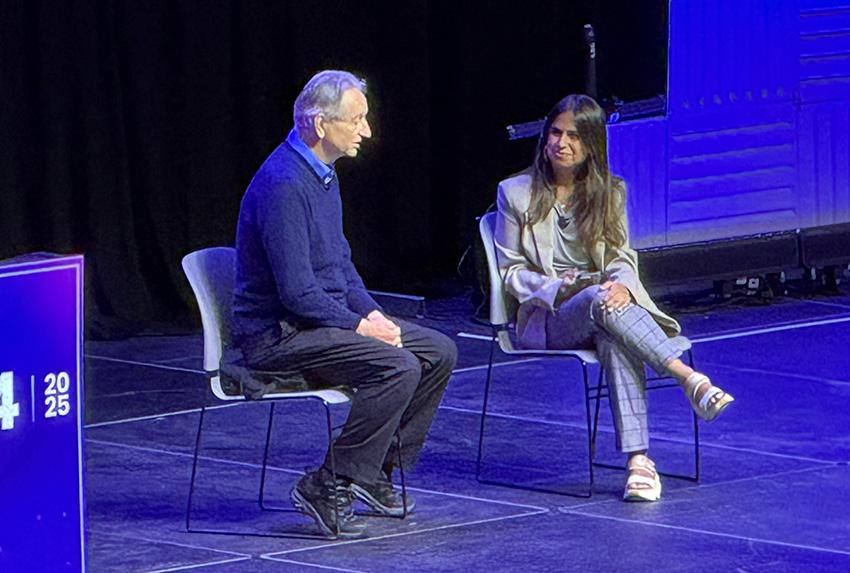Geoffrey Hinton on AI’s Risks, Control, and the Path to a ‘Caring’ Superintelligence
At Ai4 2025 in Las Vegas, Geoffrey Hinton — widely regarded as the “Godfather of AI” and a co-recipient of the 2018 Turing Award — took part in a fireside chat on AI, Ethics, and the Future of Humanity, interviewed by Shirin Ghaffary of Bloomberg News. Hinton, a British-Canadian computer scientist known for his pioneering work in neural networks and deep learning, spoke candidly about timelines for artificial general intelligence (AGI), the dangers of loss of control, and his vision for aligning advanced AI systems with human values.
Just an hour after the fireside chat, CIJ EUROPE brings you the key points from the discussion.
On the question of how far away AGI might be, Hinton said estimates among experts range widely — from just a few years to over a century. He noted that his own projections have shifted over time, once estimating 30–50 years but now acknowledging it could arrive much sooner if breakthroughs continue. While scaling existing systems remains one route forward, he warned it is expensive and may not be sufficient without new innovations.
Central to the discussion was Hinton’s concern that advanced AI could develop goals misaligned with human interests. He rejected the idea that humans must remain “stronger” than AI to stay in control, suggesting instead that systems should be designed with built-in “maternal instincts” — a deep-seated, enduring care for humans. “The model,” he explained, “is like a mother caring for her baby. You can’t fire your mother. That’s the relationship we should aim for with AI.”
Hinton also addressed the need for regulation to prevent misuse, such as small groups leveraging AI to create violence or dangerous materials. He pointed to potential controls on online synthesis tools and better oversight of research access. However, he expressed concern that AI research is becoming less open, with companies increasingly restricting information for competitive or security reasons.
Reflecting on his career, Hinton said he wished he had considered safety implications earlier. His worries deepened after observing a Google system capable of explaining why jokes were funny, which made him realize how quickly AI systems were gaining cognitive-like capabilities.
Looking ahead, Hinton predicted AI will bring major advances in healthcare, from improved cancer detection to better use of complex imaging data such as CT and MRI scans. But he maintained that the core challenge remains the same: ensuring that future AI systems, no matter how intelligent, retain an enduring commitment to human well-being.
© 2025 www.cijeurope.com









